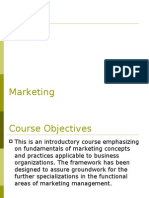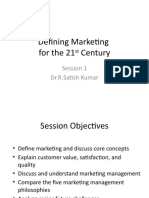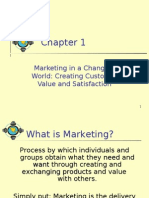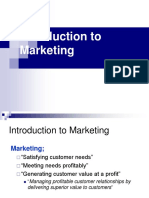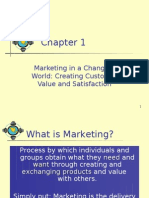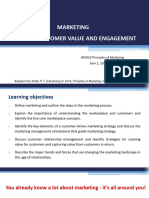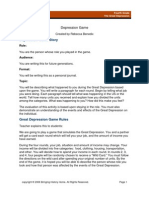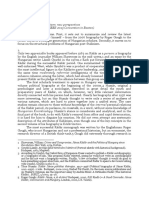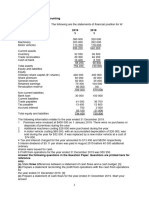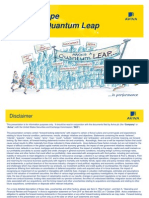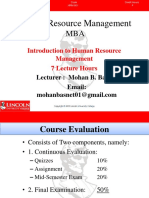0% found this document useful (0 votes)
49 views35 pages21st Century Marketing Concepts
This document discusses key concepts in marketing for the 21st century. It defines marketing as a social and managerial process of obtaining what individuals and groups need and want through creating and exchanging products and value with others. The three main goals of marketing are to maximize consumption, consumer satisfaction, and choice to improve life quality. The document also covers customer value, satisfaction, exchange and transactions, relationships, marketing philosophies, and the importance of understanding customers to develop the right products and deliver satisfaction at a profit.
Uploaded by
Sajuti RumnazCopyright
© © All Rights Reserved
We take content rights seriously. If you suspect this is your content, claim it here.
Available Formats
Download as PPT, PDF, TXT or read online on Scribd
0% found this document useful (0 votes)
49 views35 pages21st Century Marketing Concepts
This document discusses key concepts in marketing for the 21st century. It defines marketing as a social and managerial process of obtaining what individuals and groups need and want through creating and exchanging products and value with others. The three main goals of marketing are to maximize consumption, consumer satisfaction, and choice to improve life quality. The document also covers customer value, satisfaction, exchange and transactions, relationships, marketing philosophies, and the importance of understanding customers to develop the right products and deliver satisfaction at a profit.
Uploaded by
Sajuti RumnazCopyright
© © All Rights Reserved
We take content rights seriously. If you suspect this is your content, claim it here.
Available Formats
Download as PPT, PDF, TXT or read online on Scribd
/ 35






